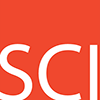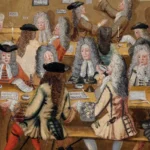SHORT VIDEOS (about 65 minutes total)
- Historian Aileen Fyfe from the University of St. Andrews speaks about the past and future of scholarly publishing in her September 2015 keynote address at OASPA. Time index 27:25-45:30 focuses on peer review; the first 27 minutes are a wonderful history of scholarly publishing if you have time, and the Q&A session (to time index 54:24) is also great. https://www.youtube.com/watch?v=6X-AbNMWrmE (Zeeba: Sept 30, 2015)
- What is the role of research libraries and scholarly publishing in supporting the research of tomorrow? This 30 minute video features OSI2016 delegate Catherine Murray-Rust, Vice Provost for Learning Excellence and Dean of Libraries at the Georgia Institute of Technology. Murray-Rust spoke at Elsevier’s 2013 Digital Libraries Symposium at ALA Midwinter. http://libraryconnect.elsevier.com/articles/where-research-goes-so-goes-research-libraries-and-scholarly-publishing-catherine-murray (Elsevier: Feb 13, 2013)
- Derek Groen, a lecturer at Brunel University London, speaks to some of the unique perspectives, concerns and ideas that early career academics have regarding scholarly publishing in (you can start at about time index 1:00). https://www.youtube.com/watch?v=L65TG9xZgfY (University College London: Sept 30, 2015)
- In this 9-minute video, Gary Spencer, Associate Director of Product Management in Wiley’s Global Research Division, ponders the staying power of the PDF format in scholarly publishing. The presentation includes a brief history of digital publishing, and a look at how PDF and HTML have evolved. In spite of significant usability improvements, rich linking, and supporting information in HTML full-text articles, researchers still choose PDF over HTML 65% of the time. http://exchanges.wiley.com/blog/2013/11/11/can-scholarly-publishing-evolve-beyond-the-pdf/ (Wiley: Nov 11, 2013)
ARTICLES & REPORTS (to browse/skim)
- Diane Harley’s 2010 work, “Assessing the Future Landscape of Scholarly Communication: An Exploration of Faculty Values and Needs in Seven Disciplines,” gives a great overview of the unique and common challenges of scholarly communication across disciplines. The link that follows is to all portions of Harley’s work; the executive summary (about 20 pages long) gives a very adequate overview of this study. http://escholarship.org/uc/cshe_fsc (Berkeley: 2010).
- Harley also takes an exhaustive look at the peer review system (particularly in relation to academic promotion) in “Peer Review in Academic Promotion and Publishing: Its Meaning, Locus, and Future.” http://escholarship.org/uc/item/1xv148c8#page-1 (Berkeley: 2011). OSI2016 delegate Mark Ware has also written a wonderful overview of the peer review and journal submission and editing process. http://publishingresearchconsortium.com/index.php/122-prc-guides/prc-guide-peer-review/prc-guide-peer-review-executive-summary/156-executive-summary (Publishing Research Consortium: 2013)
- What is the future of scholarly scientific communication? These proceedings from the Royal Academy’s April 2015 conference highlight the ideas of participants (the views expressed in this report do not necessarily represent the views of the Royal Society). https://royalsociety.org/~/media/events/2015/04/FSSC1/FSSC-Report.pdf (Royal Society: April 2015)
- Nature ran a very interesting series of articles in a special issue in 2013 focusing on the future of scholarly publishing. http://www.nature.com/news/the-future-of-publishing-a-new-page-1.12665 and http://www.nature.com/news/specials/scipublishing/index.html (Nature: 2013)
OPTIONAL
- In Catherine Murray-Rust’s above-linked video, she turns her attention to an ARL scenarios report starting at time index 14:45 and continuing through 22:10, making the case for scenarios as a useful tool for library forecasting, and emphasizing their storytelling and imaginative power. The ARL document describes four very different futures for research, collections, and inquiry. http://www.arl.org/storage/documents/publications/arl-2030-scenarios-users-guide.pdf (ARL: 2010). The ACRL also did scenario planning and produced this document. http://www.ala.org/acrl/sites/ala.org.acrl/files/content/issues/value/futures2025.pdf (ARL: 2005)
- In these proceedings from the National Science Communication Institute’s 2013 “Journals & Science” conference, Susanna Priest, Tim Jewell, Jevin West, OSI2016 delegates Robin Champieux and Scott Montgomery, and several other speakers weigh in on a constellation of issues at the intersection of science and publishing, from peer review to tenure to impact factors and more. http://nationalscience.org/news/nsci-news/2013/journals-science-conference-wrap-up/ (National Science Communication Institute: Nov 2013)
- If you would like to browse a curated collection of 100 interesting science communication news stories from 2015, nSCI’s feed (http://nationalscience.org/feed/) can give you a quick overview of the current science communication landscape. To drill down into a more comprehensive archive of journal-specific news, go to http://nationalscience.org/tag/journals/; publishing-specific news is located at http://nationalscience.org/tag/publishing/, impact factors are at http://nationalscience.org/tag/impact-factors/, and so on. You can view all stories, categories and article tags at http://nationalscience.org/pages/archives/.
- What do publishers do? This Scholarly Kitchen post by Kent Anderson details a few of the contributions (96 to be exact) publishers often make to scholarship beyond their more visible activities like peer review, editing, formatting and printing. http://scholarlykitchen.sspnet.org/2016/02/01/guest-post-kent-anderson-updated-96-things-publishers-do-2016-edition/ (Scholarly Kitchen: Feb 1, 2016).
- A reminder from OSI delegate Judy Luther that The STM Association’s 2015 report provides a great primer on scholarly publishing. This report was listed in tutorial 1. http://www.stm-assoc.org/2015_02_20_STM_Report_2015.pdf (STM Assoc: 2015). The executive summary on pages 6-11 of this report provides a quick overview of key aspects of commercial publishing including, business models and versions of articles. On a related note, Judy notes that the STM Association’s 2015 Innovations seminar is also worth reviewing, with a focus on the key themes of research reproducibility, cyber security and researcher’s reputation management. http://www.stm-assoc.org/events/innovations-seminar-2015/?presentations To access all of the videos from this event, use the “Playlist” button in the top left hand corner of the YouTube video.
- OSI delegate Danny Kingsley notes that “The latest Unlocking Research blog discusses the results of a study done at Cambridge University towards the end of 2013 that looked at how the University could meet the compliance requirements of the RCUK open access policy. Recently the person who led the project, involving in depth interviews and ‘shadowing’ of academics during their work day, came to speak to members of the libraries at Cambridge and this blog summarises that talk.” This blog article notes that “As part of the project the team was looking to see if the University was involved in the publishing process in terms of helping it. However the team found that there is no contact with the University during the process of research and publishing. There was no official checkpoint where academics had to tell the University about what they were doing. While there might be a discussion between the person and their supervisor, it is not recorded anywhere.” https://unlockingresearch.blog.lib.cam.ac.uk/?p=515 (Cambridge: Feb 1, 2016)
For more information and updates, please visit the OSI2016 website at osintiative.org.










